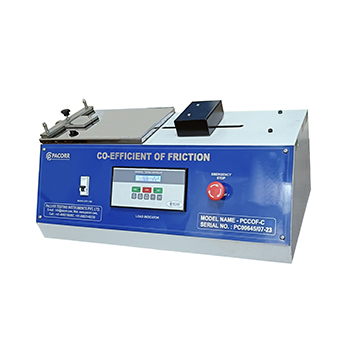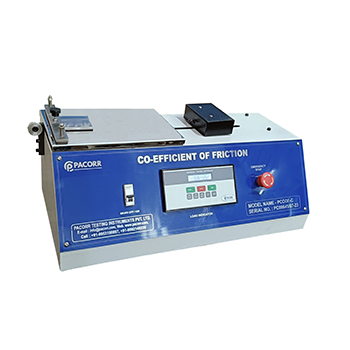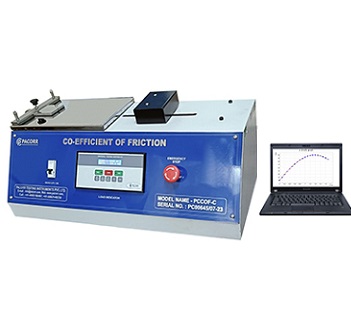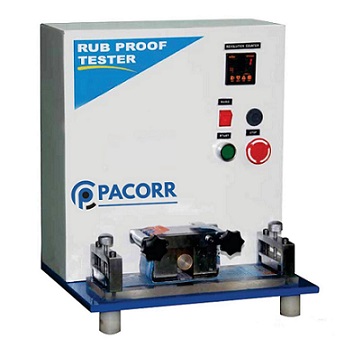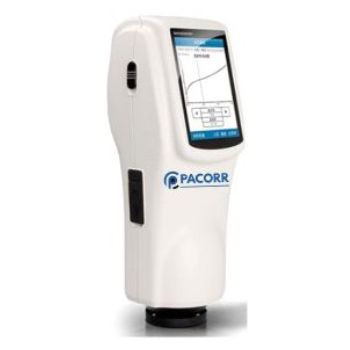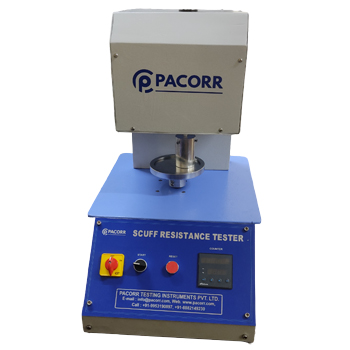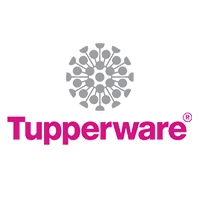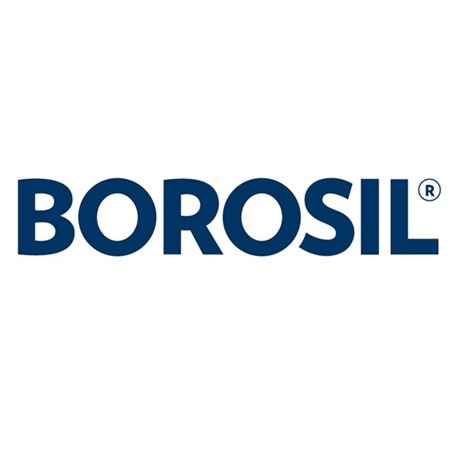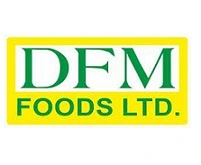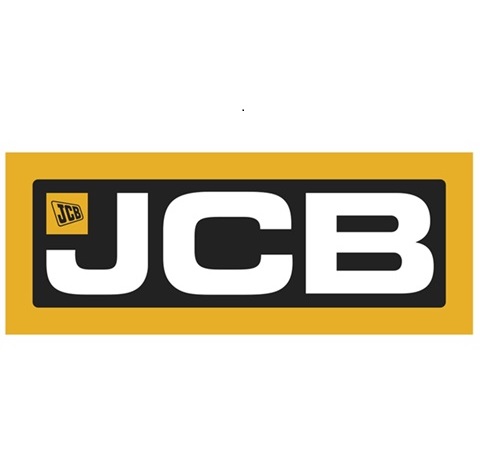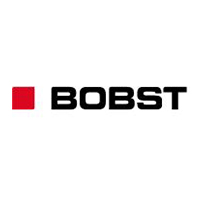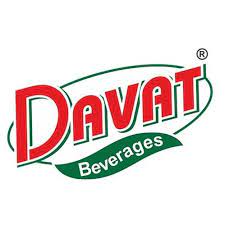A coefficient of friction tester is a device used to measure the frictional resistance between two surfaces in contact. It quantifies the coefficient of friction, which is a critical parameter in understanding how two surfaces interact under various conditions. The device typically applies a controlled force to simulate different real-world scenarios and measures how much force is needed to initiate and maintain motion between the surfaces. Results from these tests help in materials selection, quality control, and ensuring safety in product design. Co-efficient of Friction Tester (COF) is highly proficient quality testing equipment that is used to evaluate the Co-efficient of friction for material surface which has a slippery nature like a glossy magazine cover, labels, tape, packaging material like plastic sheet etc. The equipment brings new and advanced technology to precisely examine how such surfaces will react to real-life instances and assess the static and kinetic coefficients of friction for the product.
- Shipping Area: All over the world
- Model: PCCOF-D
The Coefficient of Friction (COF) Tester is an essential instrument in various industries, designed to measure the frictional properties of materials. This measurement is crucial for assessing material compatibility, ensuring product safety, and enhancing design across applications such as packaging, manufacturing, automotive, and textiles.
Understanding Coefficient of Friction Testing
The Basics of COF
The Coefficient of Friction is a dimensionless value that represents the ratio of the force of friction between two bodies and the force pressing them together. COF testing helps in understanding how two surfaces interact under specified conditions.
Static vs. Dynamic COF
- Static COF measures the force required to initiate sliding between two surfaces.
- Dynamic COF measures the force required to maintain sliding between two surfaces.
Applications and Benefits
Industries and Applications
- Packaging: Ensures materials can be handled and transported safely.
- Manufacturing: Aids in machine design and the selection of materials for moving parts.
- Automotive: Critical for material selection in brake systems, tires, and interior components.
- Textiles: Important for fabric selection in clothing, especially for sportswear and safety gear.
Key Benefits
- Safety: Prevents accidents by ensuring materials do not slip under force.
- Product Design: Enhances the functionality and usability of products.
- Compliance: Helps meet industry standards, avoiding legal issues.
Types of Coefficient of Friction Testers
Manufacturers offer a range of COF testers, including both static and dynamic models, to suit various testing needs and applications. It's essential to choose a tester that complies with relevant industry standards, such as ASTM D1894 for plastics or ISO 8295 for plastics film and sheeting.
Compliance Standards
Adhering to standards like ASTM D1894 and ISO 8295 ensures that COF testing is reliable, reproducible, and comparable across different materials and industries. These standards define the methods for conducting friction tests, including the preparation of test specimens, the testing environment, and the calculation of COF values.
The Coefficient of Friction Tester is a pivotal tool in assessing the frictional properties of materials, ensuring their compatibility and safety in various applications. By facilitating the design of safer, more efficient products and ensuring compliance with industry standards, COF testers play a crucial role in quality control and product development across multiple sectors. Whether for packaging, manufacturing, automotive, or textiles, understanding and measuring COF is fundamental to achieving product excellence and user safety.
Coefficient of friction (COF) testing is performed for a wide range of materials ranging from lubricants, films to items used in our household like ceramic tiles. The test can assess the frictional nature of the material by determining the way by which two surfaces of the same or different materials slide against each other.
| Aspect | Detail |
| Purpose | Measure the frictional properties of materials |
| Applications | Packaging, manufacturing, automotive, textiles |
| Benefits | Improves safety, enhances product design, ensures compliance |
| Types | Static, Dynamic |
| Compliance Standards | ASTM D1894, ISO 8295 |
The Coefficient of Friction Tester from Pacorr is available for purchase within a price range of INR 50,000 to INR 3,50,000. This pricing reflects the variety in models and configurations offered to cater to different testing standards and requirements. For an exact quote that fits your specific needs, including any optional features or customizations, please reach out to Pacorr directly through their website at pacorr.com, or contact their customer service team for personalized assistance.
Related Products
Our Clients
Thanks to Pacorr Testing instruments, we have all the required quality testing instruments that have helped us to ensure the best quality delivered to our clients.

Danish
Fair Exports Pvt. Ltd.

